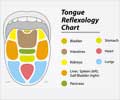An article published in the October issue of the Academy of General Dentistry's monthly newsmagazine, Impact says that flossing regularly keeps the teeth clean and is the most important factor in the prevention of gum disease
An article published in the October issue of the Academy of General Dentistry's monthly newsmagazine, Impact says that flossing regularly keeps the teeth clean and is the most important factor in the prevention of gum disease which affects more than 50 percent of the population.
"Flossing every 24 hours to break up plaque is imperative for good oral health," said Gordon Isbell, DMD, MAGD, spokesperson for the Academy of General Dentistry (AGD). Flossing regularly also keeps the surfaces of the teeth that are inaccessible to a toothbrush clean. It also prevents the accumulation of plaque and debris in between the teeth and gums. Flossing has also been associated with decreased risk of gum disease and lower incidence of bad breath. Besides removing plaque in between teeth regular flossing also polishes tooth surfaces.Floss can either be waxed or unwaxed, flavored and unflavored, wide and regular. Any type is useful in keeping the teeth healthy. Waxed floss can help in cleaning areas that are very narrow while the unwaxed floss makes a squeaking sound to let users know that their teeth are clean. Recent advances have introduced electric flosses in the markets, "Electric flossing is no substitute, but if someone has a disability (and can't manually floss,) it is better than nothing," commented Dr. Isbell.











